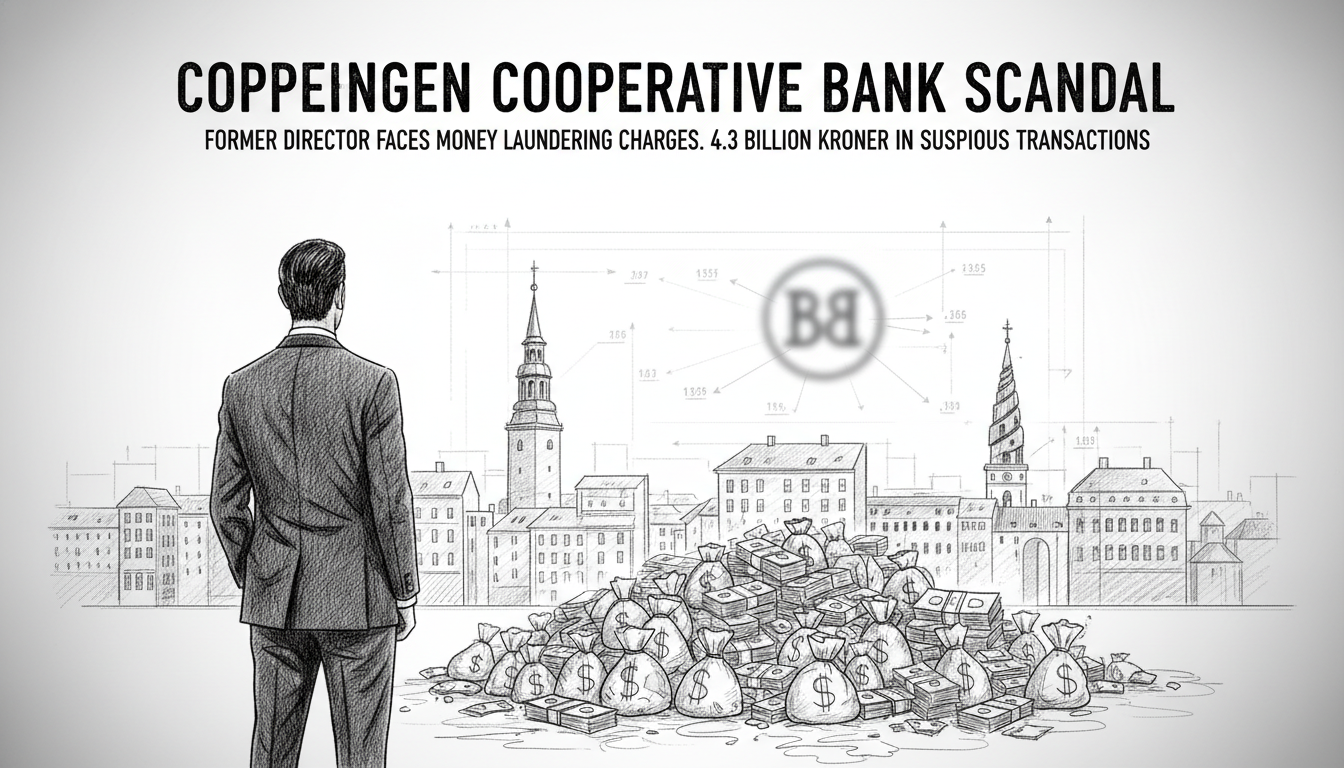A former director of a small Danish financial institution risks prison time in a criminal case centered on money laundering failures. Prosecutors allege he failed to implement adequate safeguards to prevent customers from cleaning criminal proceeds through the bank.
This case represents the latest development in a broader scandal at Copenhagen's Andelskasse cooperative bank. Another director already admitted to serious compliance failures earlier this year. He described the operation as a complete chaos factory before receiving a four-month suspended sentence in May.
The current defendant maintains his innocence as his trial begins this week. His defense argues money laundering controls for international customers fell to his already-convicted colleague. He claims responsibility extended only to domestic clients.
Two prosecutors from Denmark's National Unit for Special Crime presented their case before one legal judge and three lay judges. The lead prosecutor emphasized this matter carries substantial weight, calling it far from trivial.
The court calendar shows 26 hearing dates scheduled through next June. Eighteen individuals will provide testimony in what promises to be an extensive legal proceeding.
The charges focus specifically on transactions totaling 4.3 billion Danish kroner involving six selected customers. These included three British payment intermediaries now under police investigation for potential money laundering or handling stolen goods.
Prosecutors previously indicated suspicions that criminals used Copenhagen Andelskasse to facilitate investment fraud targeting hundreds of Europeans. This case highlights ongoing challenges in Denmark's financial oversight system despite strengthened anti-money laundering regulations following previous banking scandals.
Denmark has worked to improve its financial crime enforcement since the 2018 Danske Bank money laundering scandal revealed massive compliance failures. Yet this case involving a smaller institution suggests vulnerabilities persist throughout the banking sector.
International readers should understand this case reflects broader European concerns about financial crime. The involvement of British payment intermediaries shows how cross-border transactions create regulatory challenges. Danish authorities appear determined to demonstrate they're taking financial crime seriously, regardless of the institution's size.
The outcome could influence how smaller European banks approach compliance. Many struggle with the costs of implementing robust anti-money laundering systems. This case may force difficult conversations about whether current regulations adequately account for smaller institutions' capacities.
What happens next will depend on witness testimony and documentary evidence. The court must determine whether the director bears personal responsibility for systemic failures. Meanwhile, police continue investigating the international customers allegedly involved in the suspicious transactions.

